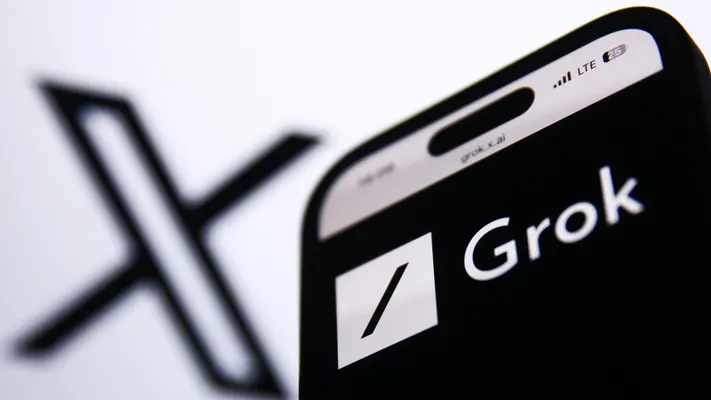Elon Musk’s xAI Launches Grok-2 Turbo: Redefining Real-Time AI Search

The xAI Grok-2 Turbo Reveal: Why This Matters
Elon Musk’s xAI has ignited heated debate and widespread interest with the unveiling of Grok-2 Turbo, an enhanced real-time search and reasoning model that pushes the boundaries of public-facing, always-updated artificial intelligence. Grok-2 Turbo promises rapid, up-to-the-minute information access—directly challenging OpenAI’s ChatGPT and Google’s Gemini—and could reset user expectations for how conversational AI systems connect with the live internet.
What Is Grok-2 Turbo? Faster, Smarter, Always Current
- Real-time access: Grok-2 Turbo delivers answers that incorporate the latest news, social media trends, financial data, and more, drawing directly from X (formerly Twitter) and the open web. This closes the notorious "knowledge gap" of models like ChatGPT, whose training data is outdated upon public release.
- Contextual awareness: According to xAI, Grok-2 Turbo can interpret evolving queries—such as live sports updates or breaking news—where previous mainstream models lagged behind. Early users report it "feels more current and responsive" than major rivals.
- Performance gains: Benchmarks leaked on X indicate Grok-2 Turbo outpaces previous Grok iterations on natural language understanding and real-world information retrieval, though comprehensive third-party evaluations are ongoing.
Industry Impact and Competitive Shifts
- Market positioning: This acceleration from xAI follows intense competition in the LLM field. OpenAI’s ChatGPT continues to lead in general adoption, while Google’s Gemini has solidified its role in enterprise and mobile integration[4]. xAI’s emphasis on real-time data—tapping into the X platform’s vast stream—positions it uniquely for applications where freshness is essential.
- Adoption trends: Early signs show strong interest from newsrooms, finance analysts, and disaster response teams anticipating faster, AI-curated updates. Notably, integration discussions are surfacing among API developers and third-party tech tools seeking to leverage Grok-2 Turbo’s live data features.
- Expert commentary: "AI that reliably tracks real-world events as they happen will change how institutions operate and respond," said Dr. Emily Ford, of the Center for AI and Society.
Challenges and Cautions: Accuracy, Safety, and Bias
- Verification hurdles: Live data raises accuracy and misinformation risks. Critics warn of "amplified errors and bias," especially when models incorporate social media content without robust fact-checking. xAI claims multi-layered filters and source attribution are in place, but transparency remains a concern among researchers.
- Future regulatory scrutiny: As regulators continue to scrutinize AI’s societal role, advancements like Grok-2 Turbo stoke debate around information quality and autonomy. Ongoing competition will likely force rivals to accelerate real-time capabilities or double down on verification workflows[2].
What’s Next? Implications for the Future of AI Search
Looking ahead, Grok-2 Turbo’s launch signals a coming era where "always-on, context-aware AI" becomes the new standard for both consumers and enterprises. Experts see the next competitive frontier not only in raw model size or intelligence but in access to the freshest, most relevant data—with trust and transparency emerging as the next decisive differentiators.
How Communities View the Grok-2 Turbo Launch
The debut of Grok-2 Turbo has split online communities across X/Twitter and Reddit, prompting energized, often polarized discussions. Debate centers on real-time AI’s promise versus its risks.
-
Tech Enthusiasts and Early Adopters (40%)
- Many on r/MachineLearning and X hail Grok-2 Turbo as a “game-changer.” Users like @alexwtech are excited about news, finance, and disaster use-cases, citing its “blazing speed and constant updates.” Some API developers share integration experiments, noting performance ahead of GPT-4 in certain benchmarks.
-
Skeptics and Misinformation Watchers (25%)
- A strong contingent, including academics (e.g., @michaelg_ai), worry about increased risk of unvetted information from live web data. Threads on r/artificial warn: “Without robust filtering, it could amplify rumors and fake news.” Calls for transparency and rigorous fact-checking are popular.
-
Industry Watchers and Competitors (20%)
- Enterprise IT specialists, journalists, and rival model advocates weigh the impact on workplace tools. They debate integration hurdles versus potential productivity gains. Notably, @sundarpichai indirectly highlighted the need for "trust and provenance" at Google in response.
-
Casual Users and Memesters (15%)
- There’s a minor but active meme culture on both X and r/Grok users, joking about "AI finally being less clueless about this week's headlines."
Overall, the tone is cautiously enthusiastic: appreciation for technological leap, but with persistent calls for safeguards and transparency.